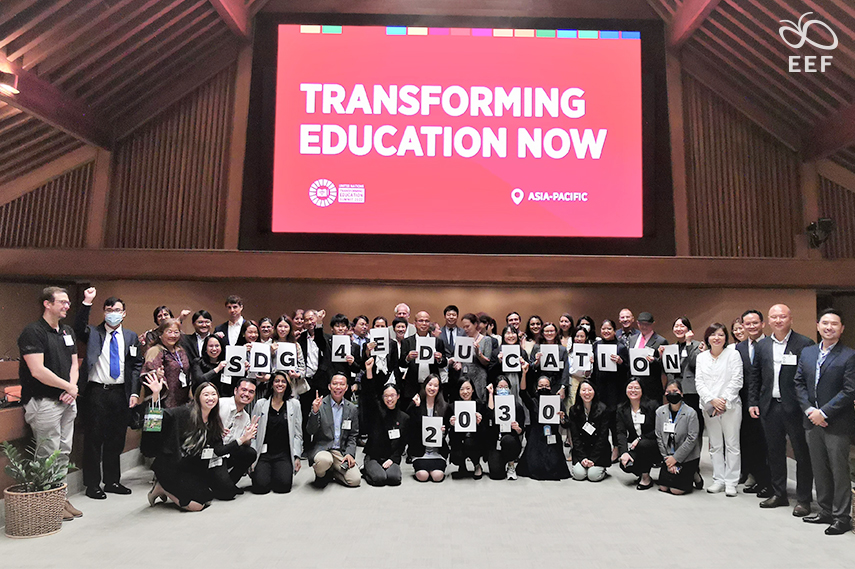
Asia-Pacific Forum on Sustainable Development (APFSD) is an inclusive intergovernmental forum and agreed platform that is organized annually by the UN Economic and Social Commission for Asia and the Pacific (ESCAP) in collaboration with other UN partner organizations for following up and reviewing the progress of the Sustainable Development Goals (SDGs) in the Asia-Pacific region. This year marks the 10th edition of the Forum, which was organized between March 27-30, 2023, in Bangkok, Thailand, under the theme ‘Accelerating the Recovery from the COVID-19 Pandemic and the Full Implementation of the 2030 Agenda for Sustainable Development in Asia and the Pacific.’ With the pandemic disrupting the world, this event is a crucial opportunity for experts and stakeholders to come together and brainstorm innovative solutions that will help the region get back on track in its efforts to achieve the SDGs.
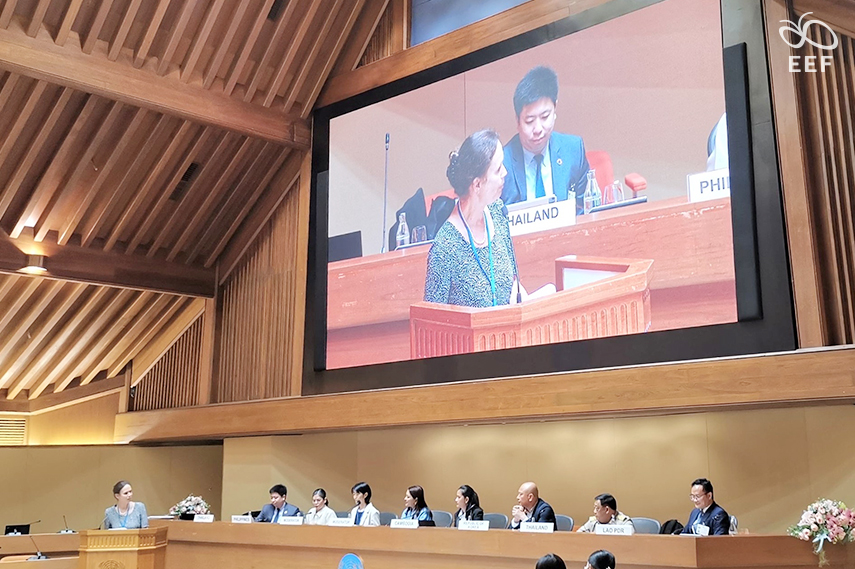
This Forum hosted a special event called ‘Transforming Education Now and for the Future, We Want: TES National Follow-up Actions to Move towards the Achievement of SDG 4,’ which focused on how the Asia-Pacific countries have operationalized their commitments, review progress made to date, as well as will seek to understand how they have so far engaged with TES’s global initiatives. Organized on March 30, 2023, by UNESCO Asia and Pacific Regional Bureau for Education (UNESCO Bangkok), UNICEF East Asia and Pacific Regional Office (UNICEF EAPRO), and the UNICEF Regional Office for South Asia (ROSA), under the auspices of ESCAP, the event provided a platform for participating countries to share and learn from good practices and innovations they had initiated to transform their education systems and address the learning crisis, contributing to SDG 4 and realizing the right to education for all.
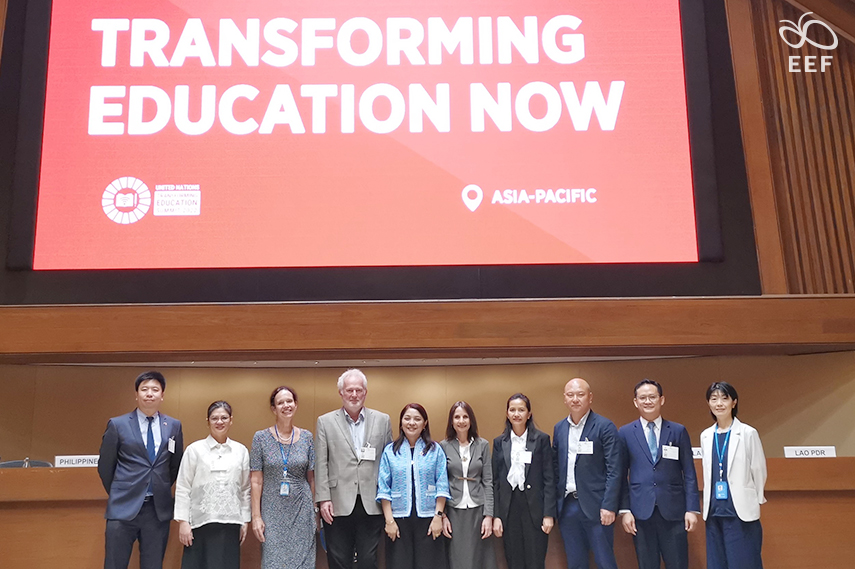
Here, speakers representing governments and other education stakeholders from the region will discuss priority actions, innovations, progress made, bottlenecks, and more equitable and efficient financing within the general framework of building more equitable, inclusive and resilient education systems, focusing on three priority areas, namely 1) Transformation of teaching and learning: curriculum, pedagogy, and assessment; 2) Climate change education and making education systems more climate resilient; and 3) Digital learning and transformation. The event also aims at enhancing regional and South-South cooperations and partnerships.
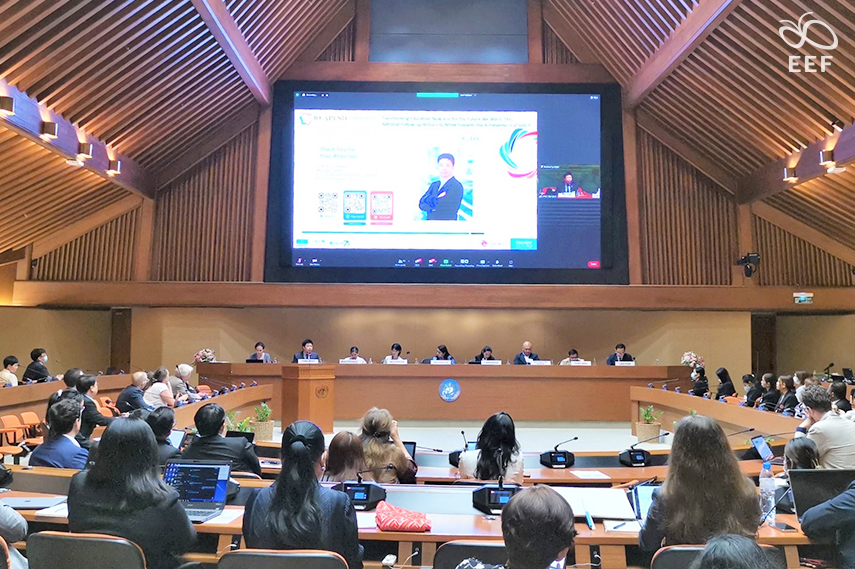
The Equitable Education Fund or EEF (Thailand) has long been recognized for its significant contributions to the field of education in Thailand. As a testament to its excellent work, Dr. Kraiyos Patrawart, Managing Director of the EEF, as its representative, was recently invited to participate as a speaker in a panel discussion titled ‘Towards a More Resilient Education System’ at the ‘Transforming Education Now and for the Future We Want’ event, sharing the EEF’s contributions to making the Thai education system more resilient, alongside representatives from leading educational organization, such as Ministry of Education (Bangladesh), Ministry of Education, Science and Technology (Nepal) and many more.
Dr. Kraiyos Patrawart started off his session with the “Equitable and Innovative Funding Model of Education Funding of the Equitable Education Fund (Thailand) and its Programs” presentation, where he presented the significance of using data on poverty to screen teachers across the country, which helped push and adjust the financial support for equality in Thailand. During the presentation, he brought some exciting news to the table on the approval of the change of the financial support for all students in the Education Security System, stating, ”Great news from March 14th, 2023: the Cabinet has just approved a whopping increase of more than 40% in financial support for the extremely poor students in the Education Security System in the academic years of 2024-2026, boosting the amount to a generous 4,200 baht. This significant change is sure to make a huge difference in students’ life and their access to education. Over the past five academic years from 2018 to 2023, these same students have already seen an 80% increase in financial support, bringing the total to 3,000 baht.”
The managing director of the EEF wrapped up his session with an impassioned call to action: true equity can only be achieved when individuals receive as needed. He then proceeded to share some remarkable achievements of the EEF’s Equity-Based Budgeting model, which has made great strides in leveling the playing field in Thailand’s education system, as well as to highlight some of the EEF’s flagship programs, including the Education Security System, which employs the Conditional Cash Transfer approach, as well as innovative financing initiatives like Zero Dropout, and PTT Virtual Run. These programs are a testament to the EEF’s unwavering commitment to creating a more equitable education system for all.
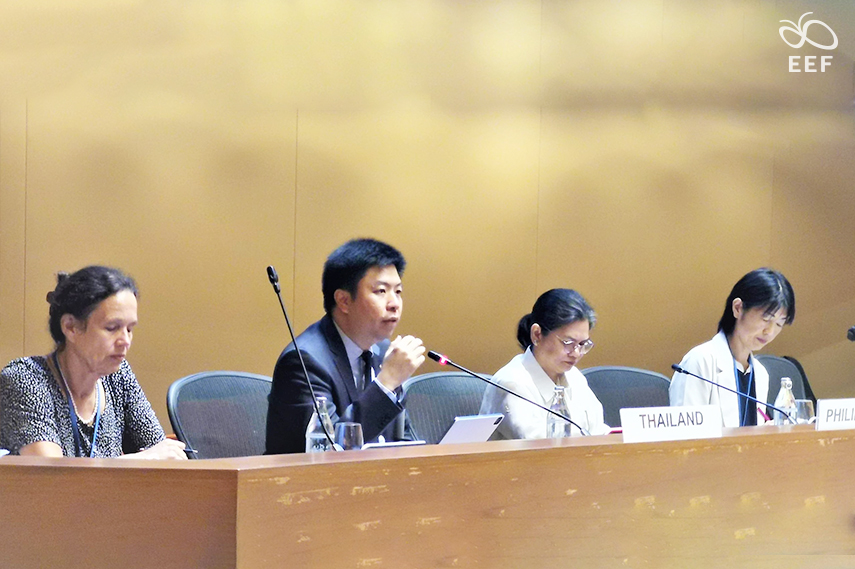
The EEF’s involvement in the event showcases its unwavering commitment to advancing sustainable and inclusive education in Thailand, and to realizing the United Nations’ Sustainable Development Goals (SDGs) that pertain to education. The organization has implemented a range of programs and initiatives aimed at bridging the educational divide for disadvantaged communities in the country. The result of these endeavors has been a marked improvement in Thai education, with greater access to education, improved infrastructure, and more innovative teaching and learning methods. By participating in the ‘Towards a More Resilient Education System’ panel discussion at the ‘Transforming Education Now and for the Future We Want’ event, the EEF underscores its rising influence and reputation in the educational sphere, and its ongoing efforts to promote sustainable and inclusive education in Thailand, which is bound to send ripples across the Asia-Pacific region.
However, the future success of this remarkable mobilization for education hinges upon the actions that countries will take to deliver on their National Statements of Commitment and subsequently reinforce the implementation of SDG 4. The follow-up to the summit requires collective efforts and multi-stakeholder engagement from the local to national levels, a whole-of-society and whole-of-government approach, all supported by the international community and other stakeholders at both the regional and global levels. The world has never witnessed such a crucial turning point in education. The time for complacency is over; It is now up to countries to seize this opportunity and take the necessary action to transform education and secure a brighter future for all. EEF (Thailand) is truly glad to be part of the SDG4 movement with all partners.
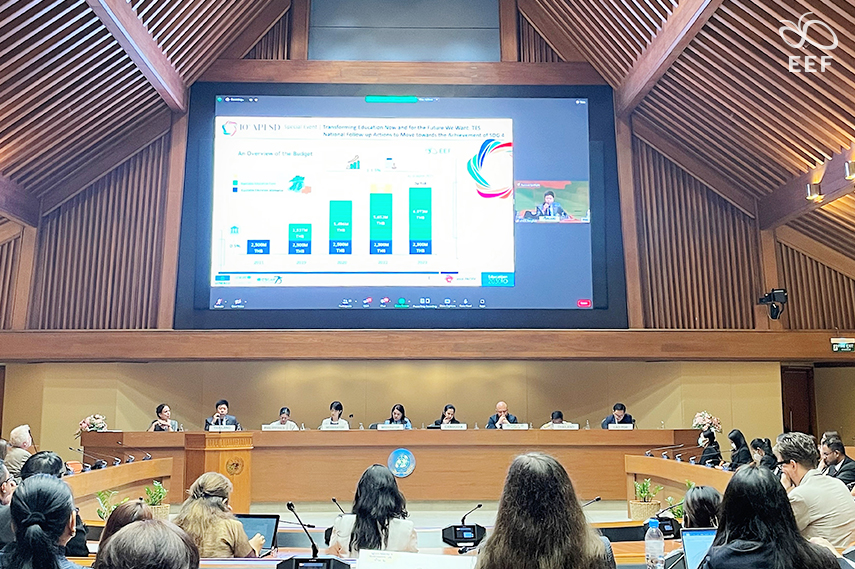
Source:

